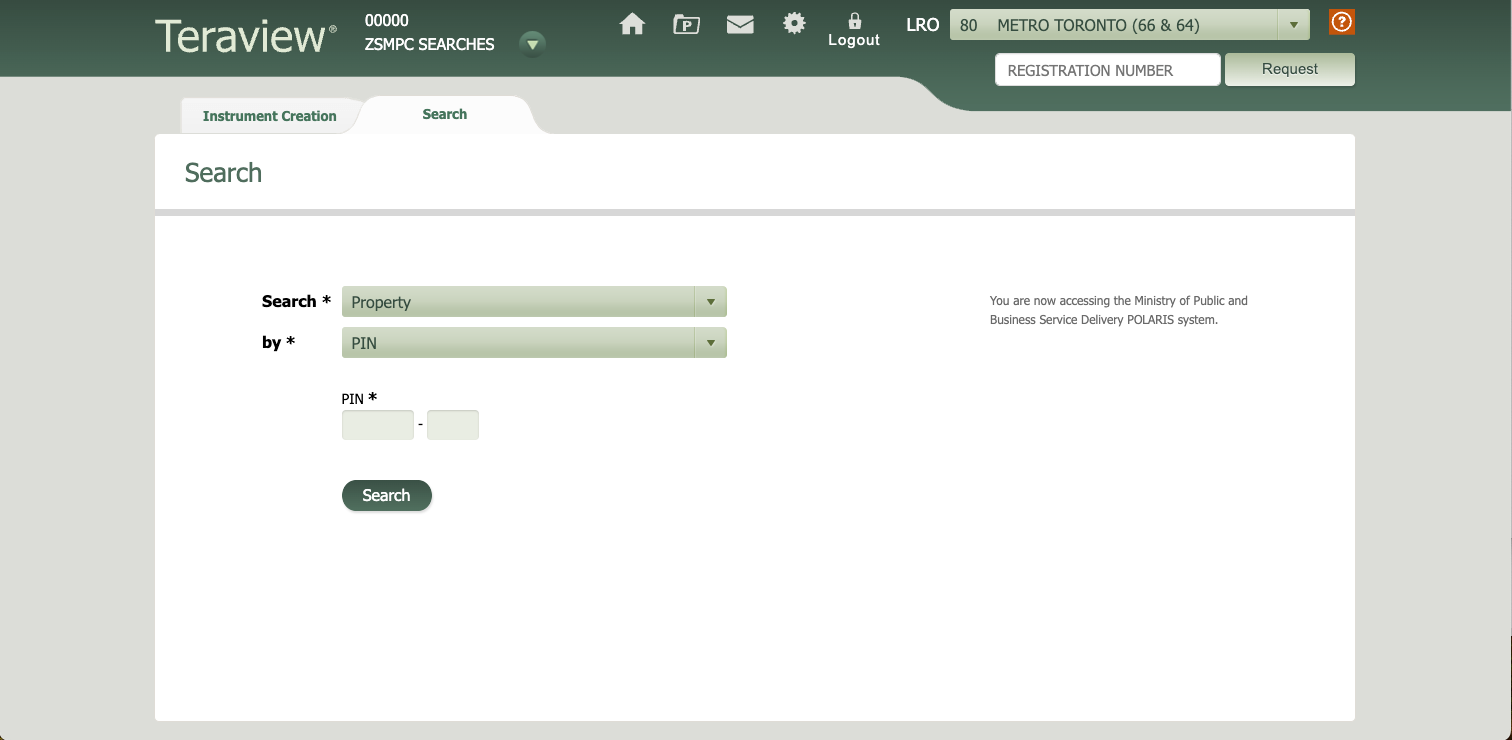Adverse Possession Ontario: A Guide for Property Owners

At this time, we are not accepting new files for this type of matter.
What is Adverse Possession?
Adverse possession - otherwise known as "squatter's rights" - is a principle of real estate law that allows a person who possesses someone else’s land for an extended period to claim legal ownership of that land.
The most common form of this comes from driveways, fences, sheds, etc. encroaching onto neighbouring property.
Characteristics of Adverse Possession
For a claim of adverse possession in Ontario to be successful, the following criteria must be present:
- Continuous Possession: The claimant must demonstrate uninterrupted possession of the disputed land for 10 years. This means the claimant must treat the property as their own for the entirety of this period without significant gaps.
- Open and Notorious Possession: The occupation of the land must be obvious to anyone, including the registered owners. The idea is that the rightful owner must be able to notice the occupation and have the opportunity to take action if they choose.
- Exclusive Possession: The individual claiming adverse possession must not share control of the land with the public, the owner, or other unauthorized occupants. It must be clear that the claimant is exercising exclusive control over the property.
- Hostile Possession: This term does not imply aggression or ill-will but rather that the claimant's possession is without the consent of the owner. The possession must be against the rights of the true owner and without any form of permission, such as a lease or rental agreement.
The Land Titles System
Ontario's approach to land ownership and registration is governed by the Land Titles System - a legally recognized system designed to provide records of land ownership. This system plays a key role in adverse possession and the ability to succeed with a claim.
Lawyers have access to Land Titles through an Online System called "Teraview".

Overview of the Land Titles System
The Land Titles System is method to record all legal title, interests, and rights in land, including ownership, easements, and mortgages. When property is registered under this system, the government guarantees the rights of the owner against claims of adverse possession, which is why it is seen as more secure compared to the previous Registry System.
Transition from Registry System to Land Titles System
Historically, the Ontario government utilized a Registry System that required manual updating in the land registrar and offered no absolute guarantee of title to landowners. Over the past few decades, properties have been systematically converted to the Land Titles System under the Land Titles Conversion Qualified (LTCQ) process. This conversion was crucial to modernizing land records and further reducing the incidence of adverse possession claims.
Once a property is converted and recorded in the Land Titles System, new claims of adverse possession cannot be used. For properties that have not been converted, the risk remains, with stringent rules that have evolved over time.
Implications for Adverse Possession Claims
Claims of adverse possession cannot succeed, if the evidence relies on possession occuring after the property entered the Land Title System. In other words, claims of adverse possession where the 10-year period of evidence precedes the date the property was converted to the land titles system can still succeed.
In practice, as time goes on, it becomes more difficult to obtain evidence to prove adverse possession during a 10-year period prior to a land titles conversion.
Legal Test for Adverse Possession
Establishing a claim of adverse possession in Ontario is a complex legal challenge that requires the claimant to pass a difficult legal test. The onus is on the person claiming adverse possession to prove they meet the specific legal requirements, which are designed to be rigorous to protect the rights of the lawful property owners.

Criteria for Adverse Possession Claims
To succeed in an adverse possession claim, the claimant must unequivocally demonstrate the following to the courts:
- Actual Possession: The claimant must show they had uninterrupted and actual possession of the Subject Property.
- Intention to Exclude the True Owner: The possessor must demonstrate that they intended to exclude the rightful owner from the possession, which can be shown through actions such as erecting fences or signs, or making improvements to the property.
- Effective Exclusion of the True Owner: The possessor must demonstrate that they effectively excluded the true owner from possession of their property without their permission or authorization.
The claimant must establish that the above use of the Subject Property was “open, notorious, constant, continuous, peaceful and exclusive of the right of the true owner”, for a 10-year period prior to conversion to land titles.
Proving Adverse Possession
The burden of proof in adverse possession claims is on the claimant. This proof often requires substantial evidence, which may include:
- Witness Testimony: Individuals who can attest to the claimant's long-term possession of the property.
- Photographs and Other Documentation: Images or documentation showing the claimant's use of the land over the claim period.
- Surveys and Expert Testimony: Professional testimony and detailed surveys demonstrating exclusive possession and use.
Legal Representation and Adverse Possession Claims
Given the complexities involved, legal representation is critical for succeeding with an adverse possession claim. A lawyer with expertise in real estate law can provide invaluable assistance in gathering evidence, preparing documentation, and representing the claimant's interests in court.
Defending Adverse Possession Claims
Defending against adverse possession claims is an essential aspect of protecting property rights in Ontario. Property owners must be proactive and knowledgeable about the law to safeguard their interests effectively.
Reviewing your Parcel Register
Finding the date your property was converted to Land Titles is the first step when dealing with a potential adverse possession claim. To find the exact date you can look at the property's Parcel Register.

The next thing to check is the "qualifier" of the property. If you go back to the picture of the Parcel Register, you'll see the term "LT Conversion Qualified" circled at the top. This means that a claim for adverse possession can still be made against the property, as long as the evidence is prior to the conversion date. However, some properties will show " LT Absolute" or "LT Absolute Plus". Properties with either of these qualifiers are not subject to claims for adverse possession.
Strategies and Preventative Measures for Property Owners
Property owners should be vigilant and take active steps to defend their property from potential adverse possession claims:
- Regular Monitoring: Regularly inspect your property lines to ensure no one is encroaching on your land.
- Address Encroachments Immediately: If you discover an encroachment, address it immediately. Early intervention can prevent the establishment of adverse possession.
- Clear Boundary Markings: Maintain clear boundary markers such as fences, hedges, or signs to delineate your property limits.
- Documentation: Keep detailed records of any disputes or encroachments and how they were resolved.
- Legal Agreements: If someone is using your land with your permission, document this agreement in writing to avoid any confusion about the nature of their possession and legal ownership.
- Stay Informed: Keep abreast of changes in the law that may affect your property rights.
- Know Your Rights: Understanding your rights as a property owner can empower you to take swift and appropriate action when necessary.

Additional Information for Property Owners
It's easier for someone claiming adverse possession to be successful when it's based on a mistake rather than an intention. For example, if both neighbors believed the property line to be in one place, and made improvements based on that belief, the law is more sympathetic to granting these claims versus someone trying to intentionally expand their property.
Any claims for adverse possession apply only to the actual land in question. In a claim where a driveway encroaches over the property line, the adverse possession would only apply to the exact area that the driveway is on.
It's becoming more difficult to successfully claim adverse possession. This is because any evidence used to prove a claim must be from before the property was converted to the Land Titles System. Most properties in Ontario were converted sometime in the early 2000s, meaning any admissible evidence must be from before then.
Summary
Adverse possession is a key legal concept in Ontario that can lead to changes in who owns property. Understanding the rules for adverse possession is important for both those who want to claim land and for a landowner protecting their real property.
When dealing with adverse possession issue in Ontario, the first step should be advice from a specialized real estate lawyer.
Frequently Asked Questions (FAQ)
Does adverse possession still apply in Ontario?
Ontario now uses the Land Titles System, which does not allow for adverse possession. However, a claim of adverse possession can still succeed, subject to qualifiers and timing of the claim.
Is Adverse Possession the same as "Squatter's Rights"?
Yes, adverse possession is the proper legal term of the legal concept known commonly as Squatter's Rights.
What is the legal test for adverse possession in Ontario?
The legal test for adverse possession in Ontario requires proving continuous, open, and exclusive use of the land without the owner's permission for at least 10 years.
How can you prevent adverse possession in Ontario?
To prevent adverse possession in Ontario, regularly monitor your property, address any trespassing immediately, and clearly mark your property boundaries.
How do I get a copy of my property deed in Ontario?
To get a copy of your property deed or parcel register in Ontario, you can contact a real estate lawyer or use the Land Registry Office online portal called "ONLAND".
How long before you can claim squatters rights in Ontario?
In Ontario, you can claim squatters rights, or adverse possession, after openly and continuously using the land for at least 10 years without the owner's permission.
